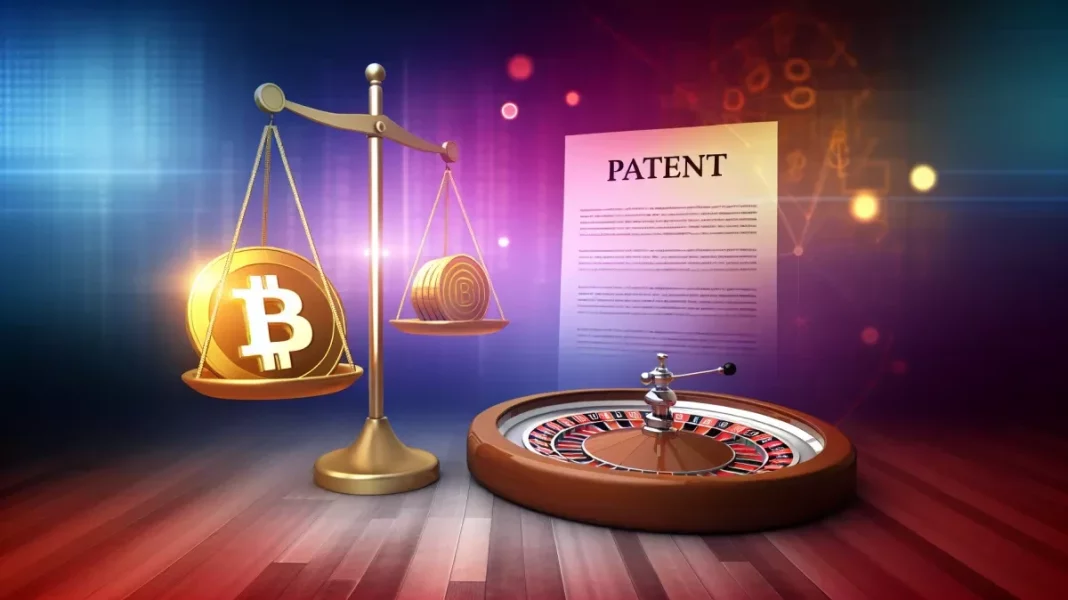In recent years, the online gambling industry has seen a radical transformation, thanks in no small part to the revolutionary role of cryptocurrencies, with Bitcoin at the forefront. Bitcoin gambling has emerged as a popular and expanding niche, offering users the benefits of anonymity, increased security, lower transaction fees, and speedier withdrawal processes. As this industry evolves, a burgeoning question arises regarding the intersection of technological innovation and legal protection—particularly in the realm of patent laws.
The concept of Bitcoin gambling taps into the essence of decentralized finance (DeFi) and blockchain technology. Through these revolutionary systems, Bitcoin casinos and online betting platforms are able to offer a drastically different experience than traditional online gambling. Provably fair algorithms—unique to cryptocurrency-based betting—enable players to verify the fairness of each outcome, fostering a level of trust and transparency that was previously elusive.
On the cutting edge of this innovation are unique gambling platforms and games, novel payment integration systems, and proprietary software solutions, all of which are potential candidates for intellectual property (IP) protection under patent law. Patents provide an avenue for inventors and businesses to secure exclusive rights to their inventions, potentially reaping the rewards of their investments while also contributing to the wider body of knowledge and technological advancement in the public domain.
However, patenting within the Bitcoin gambling space isn’t straightforward. The inherently public and open-source nature of blockchain technology, on which Bitcoin and most cryptocurrencies operate, sits somewhat at odds with the concepts of exclusivity and ownership that underlie patent law. Still, the United States Patent and Trademark Office (USPTO) and equivalent bodies internationally do grant patents for blockchain-related innovations, albeit with stringent requirements.
To patent a Bitcoin gambling innovation, inventors must demonstrate that their invention is novel, non-obvious, and offers a practical application—criteria that are not always easy to meet in the rapidly advancing and crowded field of technology. For example, a number of gambling platforms may adopt similar mechanisms for provably fair play or use similar cryptographic methods to secure transactions.
Yet, despite the challenges, some organizations have successfully navigated the patent landscape. A case in point involves technology that ties a specific gaming outcome to blockchain transactions, such as a slot machine that dispenses cryptocurrency rewards. By achieving patent protection, these creative improvements are locked down for a period of time, often 20 years, providing the patent holders a temporary monopoly in the market.
The allure of legal protection has inspired a rush to file patents within the cryptocurrency space, but this is accompanied by concerns from the community. There is apprehension over creating a “patent thicket,” a dense web of overlapping intellectual property claims that could stifle innovation and the open nature of blockchain technology. Some industry players argue that, rather than walling off new inventions, innovators should work collaboratively or rely on alternative models, such as open patents or software licensing that promote shared progress within the community.
Meanwhile, patent law is fraught with complexities when applied to decentralized systems. Jurisdictional issues arise when considering the global reach of Bitcoin gambling platforms, as patent protection is typically confined to specific countries or regions. Additionally, enforcing patents in a decentralized landscape may be exceptionally challenging, often requiring extensive legal resources to pursue potential infringements against often anonymous or pseudonymous parties across international borders.
In terms of legal protection for consumers, Bitcoin gambling operates within an ambiguous space, as traditional regulations are not always applicable or enforceable. Even though patents can protect innovations, they don’t necessarily provide direct protection for users who partake in Bitcoin gambling. Issues such as fraud, theft, or unfair practices are governed by a patchwork of national laws and regulations that may not cover cryptocurrency transactions or the specifics of decentralized gambling.
To navigate these complexities, industry players should employ rigorous legal diligence, ensuring that their patent strategies are clear, thoroughly researched, and built with an understanding of both the technological and legal landscapes. They must also work proactively to address the issues of consumer protection, aligning their operations with the evolving regulatory environment for a sustainable long-term outlook.
As the hype around cryptocurrencies and blockchain technology continues unabated, the legal framework surrounding these innovations must keep pace. The delicate balance between fostering innovation and providing adequate legal protections is vital for the ongoing growth and maturation of the Bitcoin gambling industry. Innovators, lawmakers, and the gambling community at large are all stakeholders in building a secure, fair, and dynamic ecosystem that harnesses the revolutionary potential of Bitcoin for the gambling sector while ensuring responsible and legal conduct.
Looking to the future, the Bitcoin gambling industry and accompanying patent landscape will undoubtedly remain areas of great interest and importance. As legislators around the world grapple with the implications of this evolving space and work to integrate it within existing legal frameworks, industry players are tasked with the challenge of pioneering responsible innovation while navigating the complex tapestry of patent law. The outcomes of these efforts will shape the future of online gambling, not just for Bitcoin enthusiasts, but for the wider community of gamblers seeking secure and authentic gaming experiences online.



